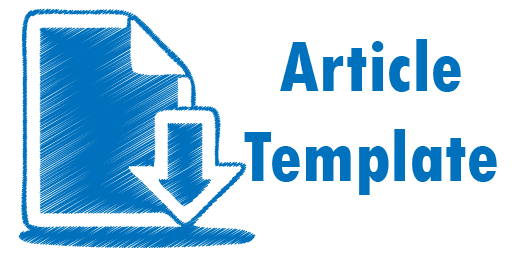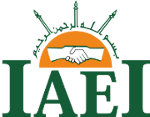Implementasi Fatwa MPU Aceh No. 9 Tahun 2013 Pada Perusahaan Tambang di Provinsi Aceh
DOI:
https://doi.org/10.47498/tasyri.v15i1.1339Keywords:
Mining Zakat, Qanun, HaulAbstract
Aceh as one of the provinces in Indonesia which is famous for its area that stipulates Islamic law as a whole in all aspects, be it the relationship between humans and with Allah SWT. This is evidenced by the existence of special sharia rules or called Qanun set by the MPU. These rules must of course be accompanied by appropriate practices, not limited to a single product. The practice in question is, carrying out all kinds of rules that have been established as a society with the application of applicable law. The implementation of zakat has encountered many obstacles because it is still not followed by an adequate level of understanding on how to implement zakat. The lack of understanding of the types of assets that are obligatory on zakat and the payment mechanism guided by Islamic law causes the implementation of zakat worship to be highly dependent on each individual. The type of research that the writer uses is descriptive qualitative research with the method of case studies (case studies) and field studies (field research). In this study, the authors conducted a study directly in the field to obtain concrete data regarding the preparation for mining zakat in Aceh. The research approach that will be used in this paper is a normative juridical approach and an empirical juridical approach. The rules regarding zakat in Aceh itself are certainly sufficient, especially on mining zakat, as written in Aceh Qanun Number 10 of 2012, but the practice of enforcing Qanuns faced by the current government is still the main factor in hampering the process of collecting and distributing zakat. there are still many groups who think that zakat on mining goods is the same as trade zakat, which is then paid by the company when it reaches the haul. As for the mining zakat itself, scholars have ordered that your haul is not set.
Downloads
References
Al-Imam Asy- Syāfi‘ī, Al-Umm, Beirut: Dar Al-Kutub Al-Ilmiyah, III.
Al-Yasa’ Abubakar, Metode Istilahīah, Banda Aceh: Bandar Publishing, (2012).
Bayu Setyadipraja, “Pembatasan Zakat Tambang Pada Emas dan Perak”, Skirpsi sarjana Fakultas Syariah dan Hukum Universitas Islam Negeri Ar-Raniry, (2017).
Fakhruddin, Fiqh dan Manajemen Zakat Indonesia, Malang: UIN Press, (2008).
Muhammad Farabi Dinata. (2018). Analisis Hukum Islam Terhadap Sistem Pengelolaan Dana Zakat di Baitul Mal Aceh Singkil. AT-TASYRI’: JURNAL ILMIAH PRODI MUAMALAH, 10(2).
M. Ali Hasan, Zakat dan Infaq: Salah Satu Solusi Mengatasi Problema Sosial di Indonesia, Jakarta: Kencana, (2008).
Muhammad bin Hussain Al-Jizani, Kajian dan Penyelidikan Aturan “Asal Ibadah Adalah Larangan”, cet. I Saudi Arabia: Dar Ibn Al-Jawzi for Publishing and Distribution (1431 H).
Muḥammad Abū Zahrah, Ushūlul Fiqh (Ttp.: Dār al-Arabi, t.t.).
Majelis Permusyawaratan Ulama Aceh.
Nashiruddin Baidan, Tafsīr Maudhūʻī solusi Qurani atas Masalah Sosial Kontemporer, Yogyakarta: Pustaka Pelajar, (2001).
Pasal 19 Ayat 1 Poin (f), Qanun Aceh Nomor 10 tahun 2007 tentang Baitul Mal.
Syaīkh Abdul Wahab Kallāf, Al-Ijtihīd fī Asy-Syarīʻah Al-Islāmiyyah, Terj. Rohidin Wahid Jakarta: Pustaka Al-Kautsar (2015).
Undang-Undang Nomor 11 Tahun 2006 Tentang Pemerintahan Aceh
Wahbah Zuḥaylī, al-Fiqh al-Islāmī Wa ʻAdillātuhu, Juz III, Beirut: Dār al-Fikr, (2007).
Wawancara terhadap M. Nur Miswari salah seorang pemilik tambang emas di Geumpang, Pidie. pada tanggal 28 Juni 2020.
Wawancara dengan Bapak Bobby Novrizan, salah seorang tenaga ahli di kantor Baitul Mal Profinsi Aceh pada tanggal 5 Juli 2021.
Yusuf Qardawi, Hukum Zakat, terj. Salman Harun, Didin Hafidhuddin dan Hasanuddin, Jakarta: PT Pustaka Litera Antar Nusa, (2007).
Downloads
Published
Issue
Section
License
- Hak publikasi atas semua materi informasi yang tercantum dalam situs jurnal ini dipegang oleh dewan redaksi/editor dengan sepengetahuan penulis. Pengelola Jurnal akan menjunjung tinggi hak moral penulis.
- Aspek legal formal terhadap akses setiap informasi dan artikel yang tercantum dalam situs jurnal ini mengacu pada ketentuan lisensi Creative Commons Atribusi-Non Commercial-No Derivative (CC BY-NC-ND), yang berarti bahwa hanya dengan izin penulis, informasi dan artikel Jurnal AT-TASYRI' dapat didistribusikan ke pihak lain dengan tanpa merubah bentuk aslinya untuk tujuan non-komersial.
- Setiap terbitan Jurnal AT-TASYRI', baik cetak maupun elektronik, bersifat open access untuk tujuan pendidikan, penelitian, dan perpustakaan. Di luar tujuan tersebut, penerbit atau pengelola jurnal tidak bertanggung jawab atas terjadinya pelanggaran hak cipta yang dilakukan oleh pembaca atau pengakses.






